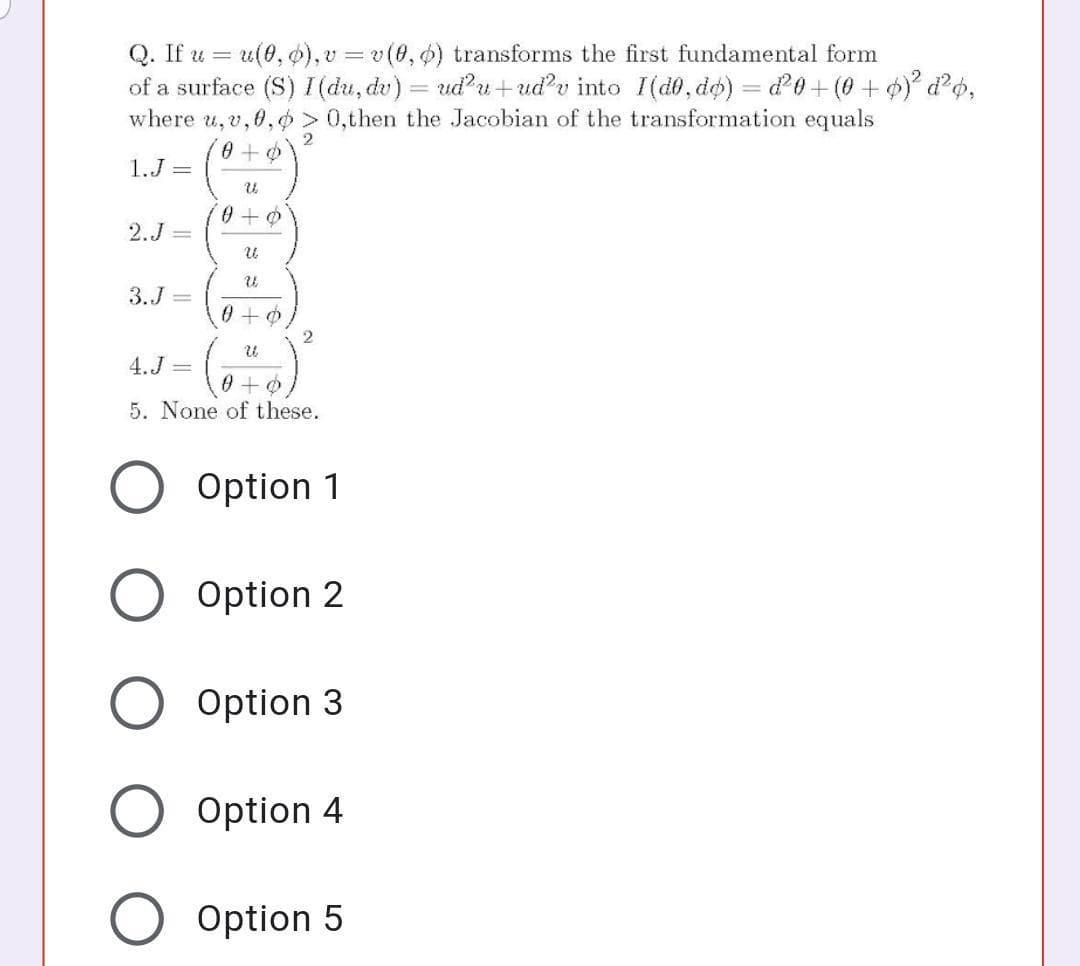Q. If u = u(0, ), v = v(0, ) transforms the first fundamental form of a surface (S) I(du, dv) = ud u+ ud?v into I(d0, dø) = d'0+(0 + ) d?¢, where u, v,0,ø > 0,then the Jacobian of the transformation equals 0+中 1.J = 9+の 2.J = 3.J = 0+の 4.J = 0+の 5. None of these. Option 1 Option 2 Option 3 Option 4 Option 5
Q. If u = u(0, ), v = v(0, ) transforms the first fundamental form of a surface (S) I(du, dv) = ud u+ ud?v into I(d0, dø) = d'0+(0 + ) d?¢, where u, v,0,ø > 0,then the Jacobian of the transformation equals 0+中 1.J = 9+の 2.J = 3.J = 0+の 4.J = 0+の 5. None of these. Option 1 Option 2 Option 3 Option 4 Option 5
Algebra & Trigonometry with Analytic Geometry
13th Edition
ISBN:9781133382119
Author:Swokowski
Publisher:Swokowski
Chapter11: Topics From Analytic Geometry
Section: Chapter Questions
Problem 18T
Related questions
Question
B9

Transcribed Image Text:Q. If u = u(0, ), v = v(0, o) transforms the first fundamental form
of a surface (S) I (du, dv) = ud?u + ud'v into I(d0, dø) = d0+ (0 + )? d?¢,
where u, v,0,o>0,then the Jacobian of the transformation equals
2
1.J =
2.J =
3.J =
4.J =
5. None of these.
Option 1
Option 2
Option 3
Option 4
Option 5
Expert Solution
This question has been solved!
Explore an expertly crafted, step-by-step solution for a thorough understanding of key concepts.
Step by step
Solved in 4 steps

Recommended textbooks for you

Algebra & Trigonometry with Analytic Geometry
Algebra
ISBN:
9781133382119
Author:
Swokowski
Publisher:
Cengage

Algebra & Trigonometry with Analytic Geometry
Algebra
ISBN:
9781133382119
Author:
Swokowski
Publisher:
Cengage